Save the date : international colloquium “Des Saumons et des Hommes 3 ” 19-21 October 2023 – Brioude (France)
Ten years after the last meeting, SOS Loire Vivante – ERN is organising a new conference on the Loire salmon. This is an opportunity to take stock of the situation of the Atlantic salmon in the Loire and elsewhere. National and international experts will try to understand the reasons for the decline despite restoration efforts and whether our actions are still in line with current and future challenges.
Is it due to climate change or to phenomena at sea or in the river? During the health check and the presentation of the results of restoration actions, we will compare the case of the Loire with other highly migratory river basins such as the Rhine, the Elbe, the Adour, the Garonne, the Sélune, etc,
Are you interested in this event?
Sign up to receive all the news in the coming months
Open letter: Counting on new hydropower to accelerate Renewable Energy deployment in Europe is irresponsible
ERN and more than 100 NGOs write to EU negotiators asking them to protect Europe’s rivers from new hydropower deployment in the revised Renewable Energy directive.
Already in 2020, 150 NGOs signed a manifesto asking EU decision-makers to stop new hydropower development in Europe.
Read the WWF press release:
Ahead of the nextpolitical trilogue on the revision of the Renewable Energy Directive, more than 100 NGOs are sending an open letter to co-legislators from the European Parliament, European Commission and Council Presidency, asking them to exclude new hydropower from go-to areas as well as to include sustainability criteria recognizing that hydropower has direct impacts on freshwater ecosystems which must be mitigated.
Because hydropower potential has been so exploited already in Europe, new hydropower would only make a small contribution to the energy transition, while causing immense damage to our waterways. According to WWF’s Living Planet Report 2022, freshwater species populations have seen the greatest overall global decline (83%), and within this species group, on average, monitored migratory fish populations have declined by 93% in Europe, making our continent the most affected.
Contact
Florian Cassier
Climate Communications Officer
fcassier@wwf.eu
+32 479 33 92 11
Participate in the European dam removal report by indicating obstacles removed in your area in 2022
Since 2020, Dam Removal Europe (DRE) has been reported the number of obstacles removed* from rivers in Europe, results that were also highlighted in 2021 by The Guardian.
From the beginning of this year and until 1 March, DRE is launching its 2022 data collection campaign, to share the final report in May 2023.
This collect is essential to evaluate the implementation advancement of EU policies and to analyze the progress of this river restoration measure in each country. Participate in this data collection and answer the survey by indicating the obstacles removed in 2022: https://damremoval.eu/news/tell-us-about-your-dam-removal/ .
*Fish passes and bypass rivers are not considered.
More infos : Foivos Mouchlianitis foivos@fishmigration.org
Access to previous reports:
Rhine River : Fish passes in Rhinau and Marckolsheim: the work has really entered the active phase
Officially launched on 8 October 2021 by Mrs. Bérangère Abba, Secretary of State to the Minister of Ecological Transition, in charge of Biodiversity, the first shovels began to be dug in Rhinau and Marckolsheim this autumn 2022.
A great technical challenge awaits EDF. These fish passes will be the largest ever built in France and in Europe. The work will be carried out simultaneously on both sites, with commissioning scheduled for 2025 for Rhinau and 2026 for Marckolsheim. This is a great step forward and in line with the timetable announced at the last conference of ministers in Amsterdam in February 2020.
But a bigger challenge still awaits EDF on the Rhine: solving and developing the Vogelgrün dam, the last real obstacle before Basel. In this context the Salmon Comeback coalition will again ask the ICPR to set up an interdisciplinary working group dedicated to Vogelgrün in order to study additional alternative solutions to those studied in the past, which proved to be extremely complex and expensive.
More information and video presentation of the project: : https://www.edf.fr/hydraulique-alsace-vosges/passes-a-poissons-rhinau-marckolsheim/le-projet-en-bref.
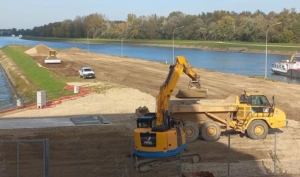
Rhinau works © EDF
Joint meeting of maritime and water directors: LRE calls for a commitment to raise ambitions for river restoration
Ahead of the joint meeting of maritime and water directors on 29 November 2022, the Living Rivers Europe coalition is sending a letter to the water directors asking them to engage in the Council deliberations on the European Commission proposal for the Nature Restoration Law to:
● Raise the barrier removal target to 15% of EU river length (178,000 km) restored to a free-flowing state by 2030 and make it legally binding;
● Remove the highlight given to exemptions to the Water Framework Directive objectives and TEN-T regulation to ensure proper implementation;
● Prioritise barrier removals according to the ecological potential of the removal, in particular the connectivity between marine and freshwater ecosystems;
● Increase the intermediary percentage targets laid out in Article 4 for the restoration and re-establishment of areas and the restoration of habitats of species, and shorten the timeline for reaching 100%, as this article also covers some freshwater ecosystems and those restoration actions would also complement the action on river connectivity;
● Recognise the need to expand the EU financing support available for free-flowing river restoration in addition to the sources identified in the EU Guidance on barrier removal for river restoration, for example, through the establishment of dedicated funding for nature restoration, pursuant to the mid-term review of the Multiannual Financial Framework.
Around exemptions from the WFD objectives :
● Make full use of the measures provided by the Water Framework Directive and other EU rules to bring Europe’s waters to good status as soon as possible and by 2027 the latest
● Do proper cost benefit analysis before applying exemptions and include long-term costs such as costs related to climate change in the decision-making
● Do proper economic analysis and put in place economic instruments for cost recovery for the coal sector, including mine drainage fees and adequate fees for cooling water abstraction that account for the external costs of operation. Earmark the revenues for restoration measures.
Loire / Rhone-Ardèche basins in France : Watertransfer by solidarity ? Webinary 15 nov 16h-18h
This online webinar, the 2nd episode, out of a total of 4, will explain, using the example of the particularly dry summer of 2022, how the Montpezat hydroelectric complex and the diversion of around 200 million M3 of water from the Loire to the Ardèche worked. How was the support of low water levels and the sharing of water between the two basins organised? Who decided what?
1 hour of debate + 1 hour of questions and answers live.
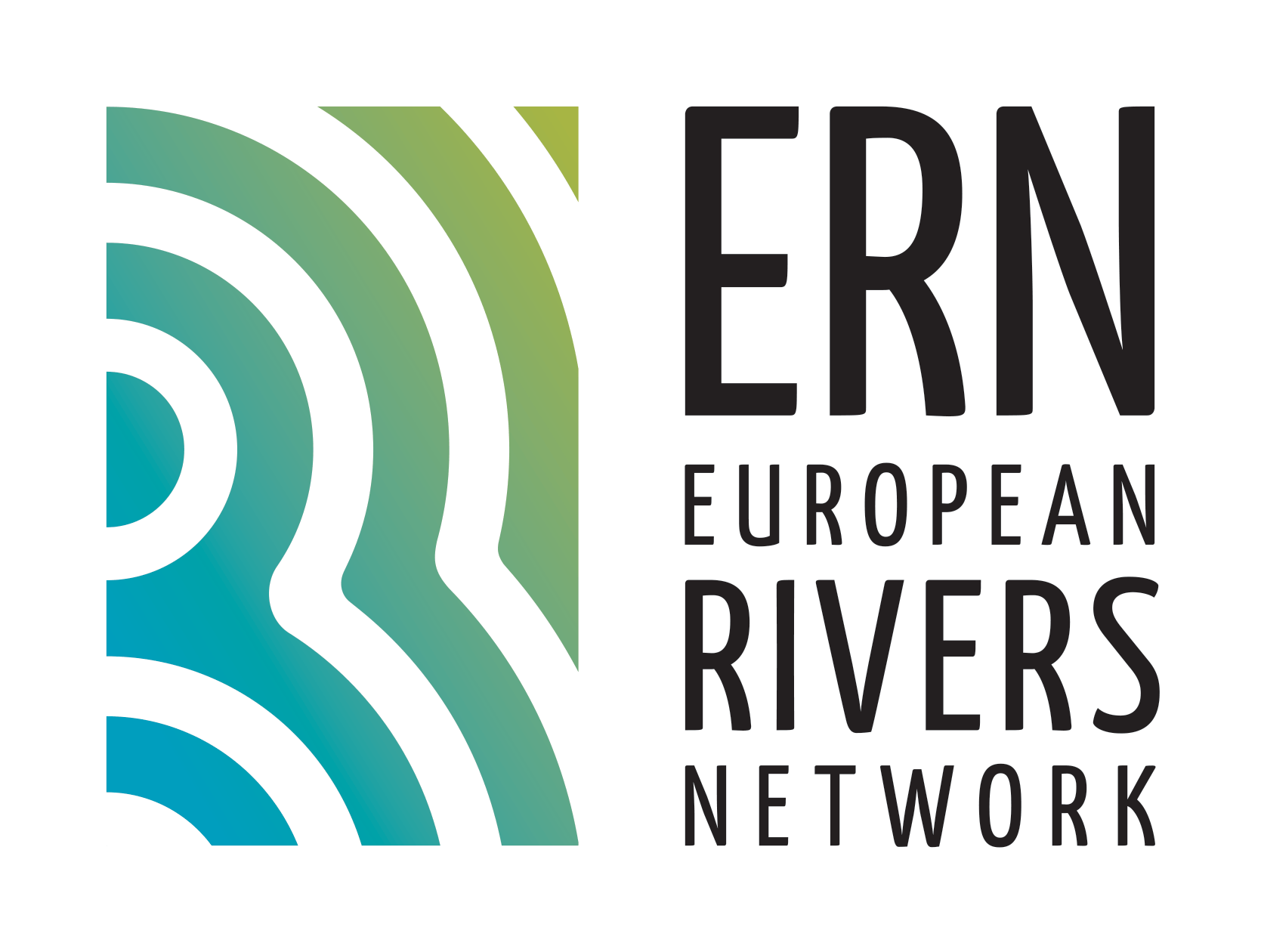

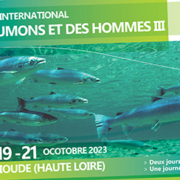
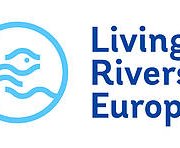
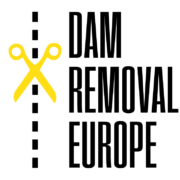
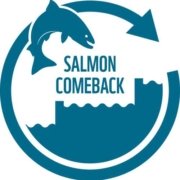
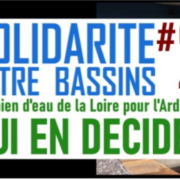
 ERN France
ERN France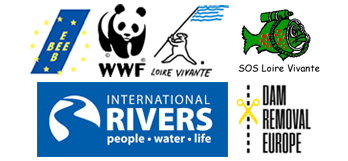 ERN is the official WWF Freshwater Partner in France and cooperates with WWF Switzerland, Austria, Netherlands and others
ERN is the official WWF Freshwater Partner in France and cooperates with WWF Switzerland, Austria, Netherlands and others